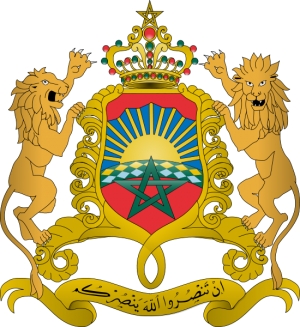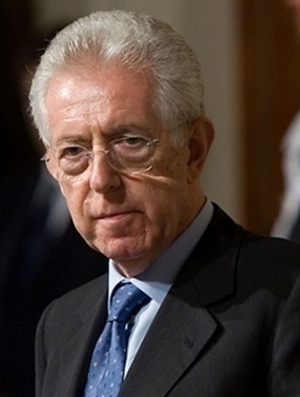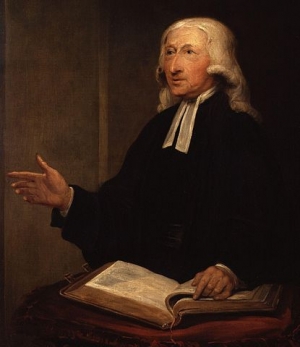Résultats de la recherche pour : Pierre Petit
Revue de presse hebdo, 17 mars
Maghreb
Amina Al Filali, 16 ans, a été obligée par la loi d’épouser celui qui l'avait violée. La jeune fille s'est suicidée, déclenchant une réflexion dans le pays sur la protection des femmes. Dans de nombreuses familles où le poids de la tradition et de la religion est très fort, la perte de la virginité hors du mariage est considérée comme un déshonneur pour la famille — Le Maroc choqué après le suicide d'une jeune fille violée (Caroline Bruneau, Le Figaro)
La religion en Constitutions — Une opinion de Loïc Le Pape sur "The politics of religion/Les politiques du religieux" (Hypothèses.org)
Revue de presse, 16 mars
Espagne
Plus de deux tiers des élèves des écoles espagnoles participent actuellement à un enseignement religieux catholique. Un sondage de la Conférence des évêques du pays révèle le 12 mars 2012 que 70,2% des élèves ont choisi pour l’année scolaire actuelle l’enseignement de la religion catholique. C’est cependant 0,8% de moins que l’année précédente - Espagne: 70% des élèves suivent un enseignement religieux (Apic, Catho.be)
Pologne
"Le gouvernement a proposé une réforme du système de financement des Eglises et communautés religieuses, qui bénéficieraient d’une déduction fiscale volontaire des contribuables" - Réforme du financement des Eglises (AFP, La Libre Belgique)
Halal et cachrout : l’économie du religieux
La crise économique et financière que nous connaissons a été l’occasion, en Grèce et en Italie notamment, d’ouvrir le débat sur les privilèges fiscaux dont bénéficient certaines Eglises, afin que celles-ci participent elles aussi aux efforts collectifs pour assurer la résorption des déficits publics. Ce débat a été le révélateur de deux enjeux fondamentaux : d’une part, l’important patrimoine constitué par certaines Eglises historiques, dans nombre de pays de l’Union européenne, là où les biens ecclésiastiques n’avaient pas été nationalisés sous les régimes communistes ; d’autre part, le fait que l’économie du religieux constitue depuis quelques années un élément de plus en plus pris en compte dans les études relatives au fait religieux, aux relations Eglises/Etat et à la laïcité.
Italian Church and State Ambiguities Challenged by the Debt Crisis. The ICI/IMU Affair
Over the last years Italians have started realizing they have to pay out of their pockets for the unsustainable weight of their sick public economy, while simultaneously growing eager on asking ‘their Church,’ the Roman Catholic Church, to share the burden. The ‘ICI’ affair exposed the discontent of an upset public opinion urging the Church to stop benefiting from ingenious tax exemptions. The new government led by Mario Monti has begun shaping fairer regulations. Will he truly succeed or will the change be purely cosmetic? And will the ‘ICI’ case awake Italians, Catholics and non-Catholics alike, to the need for healthier attitudes in Italian politics and law towards the Catholic Church?
Revue de presse, 8 mars
International
Vietnam
"Une conférence-bilan sur les tâches de la gestion publique des religions en 2011 a eu lieu le 28 février à Hanoi, sous la présidence du vice-Premier ministre Nguyên Xuân Phuc" - Conférence-bilan sur la gestion publique des religions (AVI/CVN, Le Courrier du Vietnam)
USA
"Dans le Tennessee, comme ailleurs dans le pays, les électeurs ont plébiscité Rick Santorum "parce qu'il défend la liberté religieuse", qu'il "soutient la famille" et "qu'il ne défend pas simplement nos valeurs, il les incarne", disent ses partisans" - Rick Santorum "ne fait pas que défendre nos valeurs, il les incarne" (AFP, La Libre Belgique)
Revue de presse, 6 mars
International
USA
"Anne Frank est devenue mormone. Vous ne le saviez pas ? Elle non plus. Elle a été baptisée en février à titre posthume par l'Église de Jésus-Christ des saints des derniers jours (LDS)" - États-Unis : Anne Frank baptisée par les mormons (Hélène Vissière, Le Point. Photo : Deutsche Post)
Iran
"Le camp du Guide suprême de la Révolution iranienne Ali Khamenei aurait remporté plus de 75% des sièges aux dernières élections législatives. Cela constitue une défaite pour le président Mahmoud Ahmadinejad et ses partisans. Analyse de ces résultats et bilan de la situation avec Farhad Khosrokhavar, directeur de recherche à l’EHESS et spécialiste de l’Iran" - Ahmadinejad affaibli par les législatives au profit du Guide suprême (Matthieu Mégevand, Le Monde des Religions)
Revue de presse, 5 mars
International
Maldives
"Les Maldives ? A lui seul, le nom libère un cocktail d'images suaves : sable immaculé, bungalows à fleur de lagon, féerie sous-marine. L'archipel aux vingt-six atolls, poudre d'îlots flottant au large du cône indien, évoque un éden corallien, robinsonnade chic louée dans les catalogues du tourisme mondial de luxe" - Les Maldives entre tourisme et Coran (Frédéric Bobin, Le Monde. Photo : J-F Le Falher)
Australia
"Muslim women in the Australian state of New South Wales will be required to show their faces when they have documents witnessed under new identity check laws" - Australian Muslim women must show faces for identity checks under new law (Alison Rourke, The Guardian)
The Early Methodist Revival from a Discourse Perspective
In a number of twentieth-century critiques of Methodism (and notably in E.P. Thompson’s Making of the English Working Class), John Wesley’s discourse has been represented as an instrument in the conversion of the factory proletariat to the industrial work ethic, symptomatic of an emerging ideological paradigm heavily conditioned by the demands of increasing industrialization. While the data adopted as evidence by the critics are authentic, an analysis of the discourse in context reveals that not only have the instances of Methodist discourse been selected and combined to tie in with a particular reading of reality – religion as the opiate of the people – but also that the value judgment fostered by this partial representation has been applied indiscriminately to Methodism as a whole, with blatant disregard for the positive transforming power it exerted both on individuals and on society.
Critical Theolinguistics vs. the Literalist Paradigm
Even though “religion as the opiate of the people” is one of the oft-quoted (albeit occasionally misunderstood) tenets of Marxist criticism, nowhere in the 1,800 or so pages of Michael Toolan’s Critical Discourse Analysis (2002) can one find a study denouncing a use of religious discourse seeking “to shape people's perceptions, cognitions and preferences in such a way that they accept the existing order of things, [...] because they are made to value it as divinely ordained and beneficial.” (S. Lukes: Power: A Radical View, 1974). Theolinguistics is, then, called upon to fulfill a new critical mandate today, as the very status of religious language, i.e. the manner in which it is to be read, received, understood and believed has become an issue in a number of debates which have over the last few years captured much public attention and polarized opinion, opening a new battlefield in the culture war. Biblical, theological, literary and linguistic scholarship have offered insightful and well-informed answers to most problems of religious language; but even so, religious discourse (mainly, but not exclusively Christian) has remained a problematic and controversial topic. One reason for this seems to be that no theory of religious language, no matter how open-ended, can accommodate the full variety of religious temperaments.
God in George W. Bush’s Rhetoric
As a matter of intellectual honesty, the use made of Scripture must remain faithful to the original text and intention (inasmuch as these may be retraced). At the point where religious language comes to be fraught with ideology (or vice versa), the emerging discipline of Critical Discourse Analysis may prove useful inasmuch as it (re)places instances of language within their full co-text, con-text and inter-text and seeks to denounce cases of manipulation wherein texts are read according to a system or set of values altogether extraneous to it, or alienated from their original meaning or purpose.
I would like to illustrate this point by means of the case example of George W. Bush's recourse of religious language and categories to justify (notably) U.S. foreign policy and beyond that, to serve his own electoral purposes.















 MangoGem
MangoGem